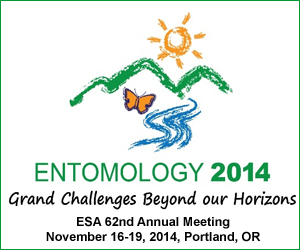The effects of lab vs. field rearing environment on physiological development of Polistes wasps
The effects of lab vs. field rearing environment on physiological development of Polistes wasps
Tuesday, March 11, 2014: 2:24 PM
Dubuque (Des Moines Marriott)
Artificial rearing environments are designed to mimic natural environments while conditions remain controlled and constant. A benefit to artificial environments is that the effects of isolated stimuli can be tested under controlled conditions. On the other hand, the disadvantage is that studies performed under controlled conditions leave unknown how those same stimuli would affect the organism under fluctuating, natural conditions. Here we compared the physiological development of social wasp larvae (Polistes fuscatus) reared in an artificial environment with those reared in a natural environment. We focused on brood that had been monitored from egg to pupa construction after the colony had been established in either the artificial or natural environment. We collected half of the focal brood when they reached the ‘pre-pupal’ stage (5th instar with a recently constructed silken cocoon), and quantified their %lipid content. The other half were allowed to pupate, and we monitored their behavior as adults for 10-days. We found that those larvae reared under lab conditions were significantly fattier (had higher %lipid) than those reared in the field. The adults reared in the lab were found more often sitting off the nest on a cube of sugar, whereas those reared in the field were found sitting on the nest, resting. In social insects, we would describe the phenotype of those individuals we collected from the field as more ‘worker-like’, and those collected from the lab as more ‘queen-like’ – even though both groups were collected at the time of year when they all should have been developing into new queens. Our results may have important implications on how data, collected from individuals reared in lab environments and compared to those reared in field environments, are interpreted.


